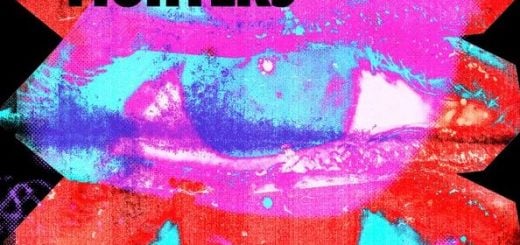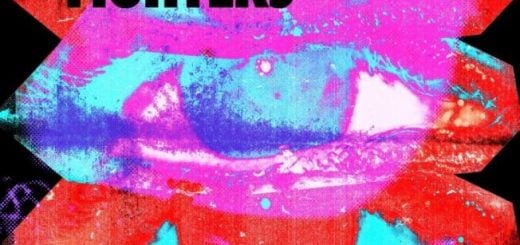Good Grief by Foo Fighters Lyrics Meaning – Unraveling Dave Grohl’s Poignant Reflection on Ambivalence
Lyrics
All of the true things around, but I like it
Handed down the crown
Given the jewels and the answers of May
The thought of being ousted
Comes and goes
Comes and goes
When I think about it, the wind blows
Hate it, hate it, hate it
Hate it, hate it, hate it, hate it
Run me out of town
Somewhere a move might intended a gown in
Pissed out all the vowels
Always the blues and a delicate smile
Missed all of the sideways
Gull and noun
Gull and noun
Chills and petty Band-Aids wrapped around
Hate it, hate it, hate it
Hate it, hate it, hate it, hate it
Good grief
Good grief
Since I’m putting down
All of the true things around, but I like it
Handed down the crown
Given the jewels and the answers of May
The thought of being ousted
Comes and goes
Comes and goes
When I think about it the wind blows
Hate it, hate it, hate it
Hate it, hate it, hate it, hate it
Foo Fighters’ song ‘Good Grief’, plucked from their self-titled debut album, resonates with the kind of emotional turbulence that has become a hallmark of frontman Dave Grohl’s songwriting. While Grohl is often lauded for his thunderous drumming and searing guitar riffs, it’s the intimate relationship he crafts between his lyrics and the listener that cements his status as a rock luminary.
Recognized for its gritty melodies and introspective nature, ‘Good Grief’ delves into the complexities of emotional inheritance and personal upheaval. Despite its surface-level simplicities, the track offers a dive into the psyche of its creator, serving as a mirror reflecting the often conflicting emotions we confront in moments of change and realization.
The Burden of Legacy: Unraveling the ‘Crown’ and ‘Jewels’
‘Good Grief’ opens like an inheritance reckoning, where Grohl grapples with what is handed down to him—be it fame, expectations, or personal demons. The ‘crown’ and the ‘jewels’ he sings of can be perceived as symbols for the weight of responsibility and the treasure trove of experiences, respectively. The lyrics betray a sense of ambivalence, embracing the bitter-sweetness of life’s endowments.
Grohl’s handling of material and immaterial inheritances creates a compelling narrative. The ‘answers of May’ he alludes to suggest a specific moment in time—a reference to the crisp unfolding of spring, perhaps signaling a juncture of newfound wisdom or the inheritance of a legacy that predetermines a path fraught with expectation.
The Sisyphean Struggle Against the ‘Wind Blows’
Grohl’s recurring imagery of the wind emphasizes a relentless force against which he contends. These gusts are symbolic of the resistance he faces, both within and without. The line ‘When I think about it, the wind blows’ could be interpreted as the artist’s acknowledgement of the effort it takes to introspect or make changes in his life—a mental or emotional gale that he must navigate.
The struggle with these forces is neither fleeting nor conclusive; it ‘comes and goes,’ suggesting a cyclical battle with bouts of introspection amidst periods of calm or acceptance.
Hate It: A Mantra for the Undercurrents of Discontent
The emphatic repetition of ‘Hate it’ throughout the song serves not only as a nod to the punk rock ethics of simplicity and directness but also as a raw, unfiltered expression of Dave Grohl’s repulsion. Each ‘hate it’ is a vehement dismissal, a refusal to acquiesce comfortably to the status quo or the expectations bestowed upon him.
This repetition becomes a sort of chant, a cathartic release from the constraints of adherence to preconceived notions of success or happiness. It’s an insight into Grohl’s own reckoning with discomfort, an admission that not all is rosy in the world of rock stardom.
Traversing Emotional Landscapes: Sideways, Gull, and Noun
The lyrics of ‘Good Grief’ carry an abstract quality, as Grohl weaves words like ‘sideways,’ ‘gull,’ and ‘noun’ into his narrative. These elements offer a linguistic tapestry that can be dissected to reveal feelings of being lost, misunderstood, or out of place—much like words that don’t quite fit neatly into a sentence.
This linguistic play is not without its significance, as the cryptic expressions may reflect Grohl’s own sense of navigating the complex emotional landscapes that accompany fame and personal growth. Emotional wounds, symbolized here by ‘Chills and petty Band-Aids’, suggest temporary fixes to deeper issues confronting the self.
The Paradox of ‘Good Grief’: Uncovering the Hidden Meaning
The phrase ‘Good Grief’ itself embodies the dichotomy that permeates the song—a recognition that within the pain of grief, there can exist a peculiar goodness. It encapsulates the nuanced understanding that painful experiences often precipitate growth, learning, and the formation of identity.
Grohl has achieved a lyrical juxtaposition that underscores the intricate balance of emotions—a reminder that grief is not merely an endpoint but can also be the genesis of something profound and transformative. It’s a testament to the artist’s ability to find a redemptive quality amidst the cacophony of hate and ambivalence that echoes through the song.








